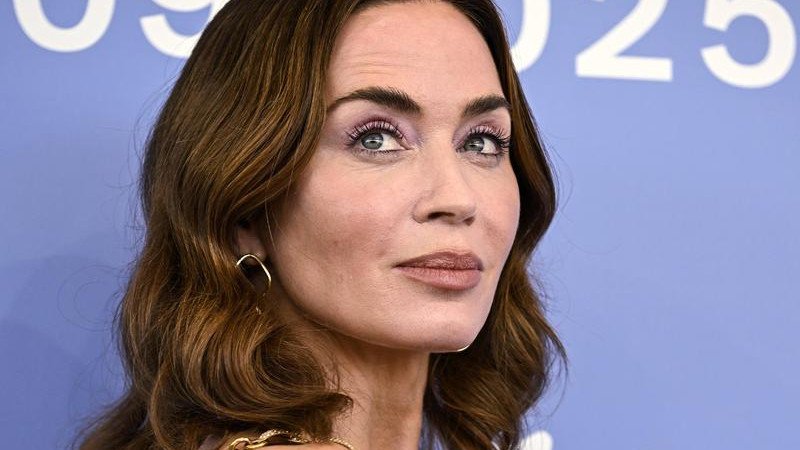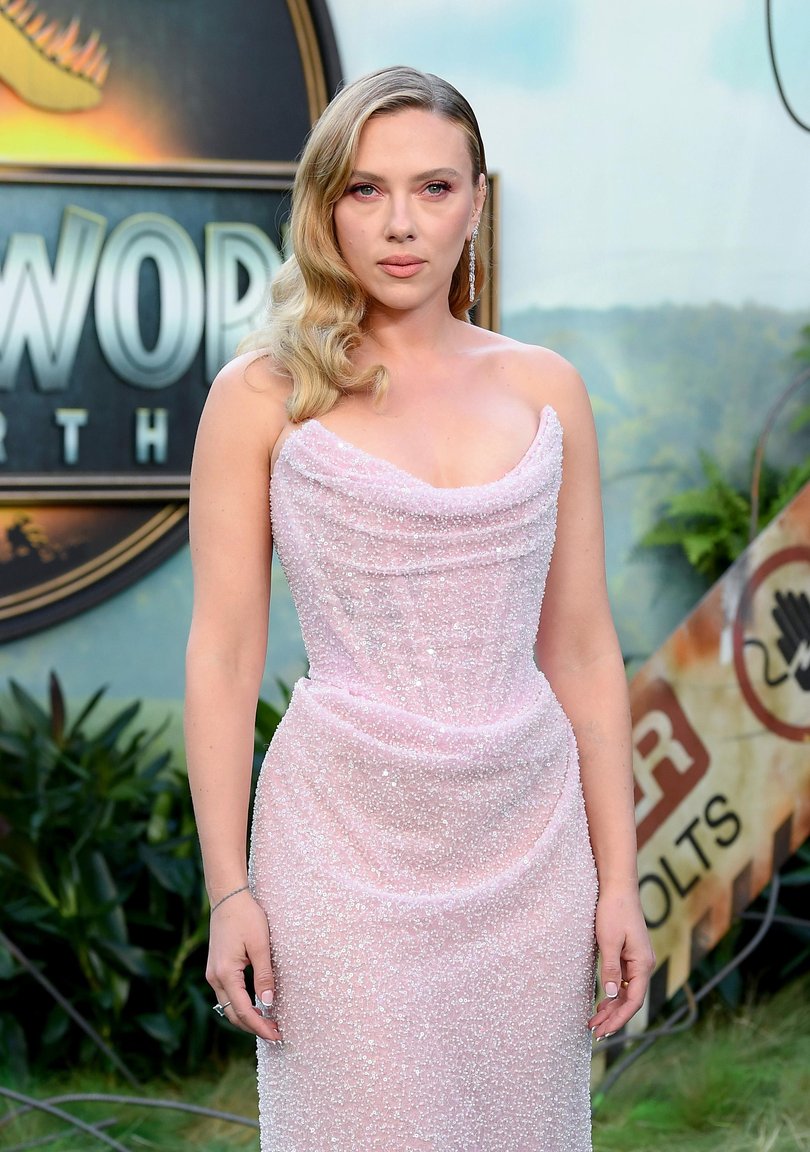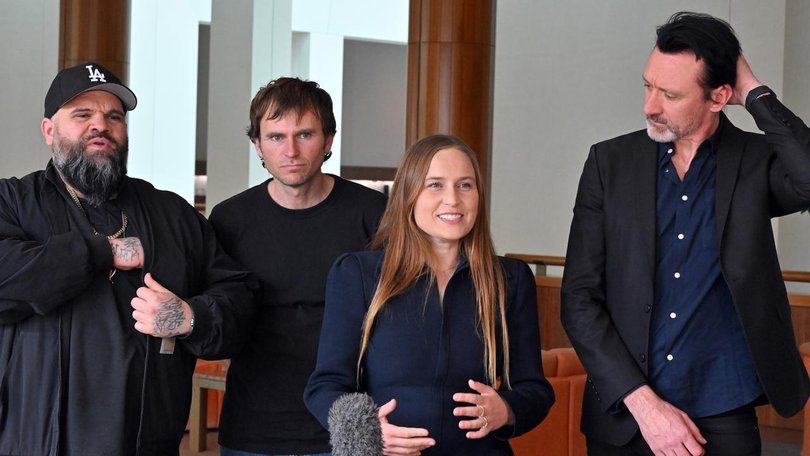‘Actor’ Tilly Norwood is at the centre of Hollywood and the creative industry’s fury over AI
Tilly Norwood is looking for a talent agent, and Hollywood is threatening to boycott anyone who works with the ‘actor’.

Eline van der Velden is a Dutch actor, producer, comedian and self-confessed physics nerd.
She has a smattering of credits for shorts and TV shows in the Netherlands, and once appeared in a movie with Jamie Dornan. Up until this week, you and most of Hollywood had never heard of her. Well, they have now and they’re furious.
Van der Velden appeared at the Zurich Film Festival’s conference with something she created — Tilly Norwood, a doe-eyed actor who looks a bit like Smallville’s Kristin Kreuk, West Side Story’s Rachel Zegler and Industry’s Marisa Abela.
Sign up to The Nightly's newsletters.
Get the first look at the digital newspaper, curated daily stories and breaking headlines delivered to your inbox.
By continuing you agree to our Terms and Privacy Policy.Except Tilly Norwood is not real. It is an AI-powered “actor” that has performed in roles on TikTok, Instagram and YouTube, and who Van der Velden claimed has attracted the attention of Hollywood talent agencies seeking to represent “her”.
Van der Velden, also the founder of production company Particle6 and “AI talent studio” Xicoia, told Broadcast International, “We want Tilly to be the next Scarlett Johansson or Natalie Portman, that’s the aim of what we’re doing.
“People are realising that their creativity doesn’t need to be boxed in by a budget – there are no constraints creatively and that’s why AI can really be a positive. It’s just about changing people’s viewpoint.”
You can imagine the reaction to Tilly Norwood from the creative community, which feels under siege from tech giants’ rapid moves to roll out AI trained on the copyright work of centuries of human endeavours.
Lawsuits are afoot in the US, brought by entertainment behemoths Disney, Warner Bros and Universal Pictures against AI companies for the unauthorised use of their intellectual property, while Hollywood guilds and prominent actors are speaking out against what could be an existential threat.
It’s safe to say Tilly Norwood — and Van der Velden — have not been greeted with open arms, hugs and kisses.
Despite her stated intention for Tilly Norwood to be the next Johansson, Van der Velden backtracked after it became clear that her comments didn’t go down well. She posted to Instagram, “Tilly Norwood is not a replacement for a human being, but a creative work — a piece of art.
“I see AI not as a replacement for people, but as a new tool, a new paintbrush.”
That is unlikely to convince those who heard Van der Velden’s original sentiments, which also included the claim, “We believe the next generation of cultural icons will be synthetic — stars that never tire, never age, and can interact with fans.”
It’s an actor’s nightmare – a rival who never gets older in an industry that idolises youth, and one without demands for fancy candles or specific drinks on their riders, or who will share in the profits of a successful release.

Emily Blunt was on the promotional circuit this week when she was asked her opinion about Tilly Norwood. Her reply was unequivocal. “Does it disappoint me? I don’t know how to quite answer it, other than to say how terrifying this is,” she said.
“Good lord, we’re screwed. That is really, really scary. Come on, agencies, don’t do that. Please stop. Please stop taking away our human connection.”
Similarly, the American Screen Actors Guild, one of the two Hollywood unions who went on a months-long strike in 2023 against the major studios, including for protections against AI use, released a statement overnight.
“To be clear, Tilly Norwood is not an actor, it’s a character generated by a computer program that was trained on the work of countless professional performers – without permission or compensation,” SAG said.
“It has no life experience to draw from, no emotion and, from what we’ve seen, audiences aren’t interested in watching computer-generated content untethered from the human experience.
“It doesn’t solve any ‘problem’ — it creates the problem of using stolen performances to put actors out of work, jeopardising livelihoods and devaluing human artistry.”
At least for now, Tilly Norwood is unlikely to pick up representation from Hollywood’s major talent agencies, whose very human clients would revolt at any such move.
Citing Johansson as the star Tilly Norwood aspires to be is an also interesting move. Whether intentional or not, when Van der Velden evoked the Jurassic World and Marvel star brings up how last year Johansson fought back against OpenAI when it co-opted her voice for their “Sky” demo.
OpenAI had earlier approached the actor and filmmaker to licence her voice to the program and she refused, so the company went ahead and did it anyway, or at least something so similar that even her closest friends couldn’t tell the difference.
She threatened legal action and OpenAI dropped its use.

Johansson has stepped up to confront bigger companies when she felt her rights or entitlements were infringed (she also took on Disney during Covid when it released Black Widow on streaming the same day it was in cinemas), but many AI businesses don’t seem to be cowed by pesky inconveniences such as copyright law.
Disney, Warner Bros Discovery and Universal Pictures have several lawsuits running against AI companies that use their intellectual property without agreement or payment. Among those in their sights are Midjourney, which allegedly used their IP to train its systems.
It is also suing Minimax, which allows its users to generate content from copyrighted characters such as Star Wars villain Darth Vader, Minions, Marvel and DC characters.
In Australia, members of the creative community yesterday convened in Canberra to speak before a hearing on national cultural policy, trying to dissuade the government from giving tech companies exemptions in copyright law.
The commission released an interim report in August which proposed granting a “text and data mining” exemption to the copyright act to allow AI to train its models without paying the owners of those works. It was met with fury from artists and creatives.
It emerged that the productivity commission had not consulted artists or modelled the impact on the creative community but had consulted with tech firms including Meta, Microsoft and OpenAI when it made its interim recommendation.

Commissioner Julie Abramson defended the report and said “we are consulting fully on this” for the final report.
Rapper Adam Briggs asked the commission, “Why is a radical notion that artists should be compensated for their work?”
Author Anna Funder likened AI models scraping copyright material to colonialism. She said, “The reason they want our stuff is because it’s valuable to them for money, and yet they are not prepared to abide by the law in paying us for that value.
“So, like colonialists, they pretend there is no value in this land. We can take this sugar, this labour, or ore, or oil. It’s worth nothing to the natives. We’re going to take it and make money out of it, but (the artists) are the natives.”
Thomas Keneally, one of Australia’s most celebrated writers, also said there was a “fascist colouration” to AI companies wanting an exemption to copyright laws.
Not all artists are too scared of AI to engage with it on some level, perhaps thinking if they could control or influence how it would be used so that human creativity could still be a part of it, rather than allowing tech people to cravenly exploit it for only profit.
There is an animated feature film called Critterz in the works, adapted from a short film of the same name. It is the brainchild of Chad Nelson, who works at OpenAI, but Critterz has the involvement of more traditional film people in a process the production has called “human-led and AI-assisted”.
Critterz will have a screenplay written by James Lamont and Jon Foster, who penned Paddington in Peru, and a human director in Nik Kleverov, whose work has primarily been short films. Vertigo Films, whose best known work is the Tom Hardy-led Bronson, is producing.
The idea is that Critterz could be made in nine months with a budget of $US30 million ($45m), instead of the several years and potentially $US200 million spent on films by animation studios such as Pixar.
The team said they’re aiming for the Cannes Film Festival in May, but it remains to be seen whether the notoriously elite French festival, which bars Netflix from its programming, will accept an “AI-assisted” entry.
Natasha Lyonne, who called for a boycott of any talent agency that gives Tilly Norwood representation, called the Van der Velden venture “deeply misguided and totally disturbed”.
Lyonne is someone who isn’t an outright opponent of AI, but advocates for a human-led, creative-led approach.
She is working with production studio Asteria on a film, which will mark her feature directorial debut, called Uncanny Value, which she also co-wrote with Brit Marling of The OA.
It’s a brave new world – and certainly a contested one.

